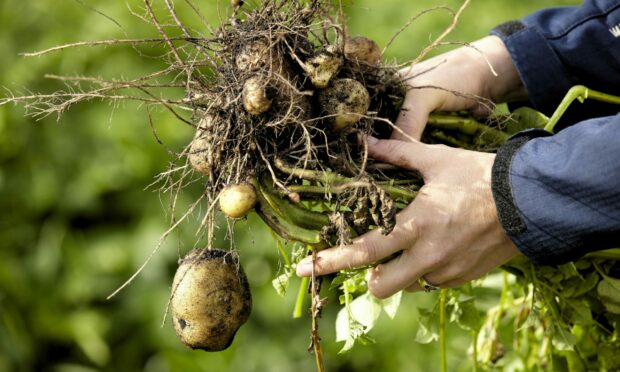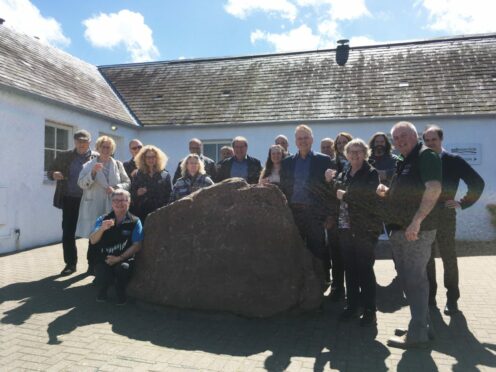The founder members of a leading Danish farmers’ co-operative originally grew potatoes for starch out of necessity – their sandy land was too poor to produce a ware crop.
But now, 90 years later, the 800 farmers who own KMC are the envy of many tattie growers who enjoy much better land as the co-op runs a multi-million euro business which controls everything from breeding new varieties, processing them and delivering starch products to food manufacturers around the globe.
KMC’s board members visited Angus this week and admired the quality of the land and the crops here, but admitted that the scale of their business and its range of products puts its farmers in a comfortable position for the future.
The co-op’s chief executive, Jesper Burgaard, said: “Maybe the soil here is too good to produce starch potatoes which are really at the bottom of the potato farming hierarchy.
“But our company is producing 1.7-1.8m tonnes of potatoes per year which is more than Scotland’s total of 1.3m tonnes, and over the last 20 years it has become an interesting profitable business for our farmers. We have a model where we use every part of the potato and that brings value.”
KMC’s main product is native potato starch, a staple ingredient of food processing, but modified starch for specific applications such as replacing the milk protein in cheese or replacing gelatine in wine gums to produce vegan products is a rapidly developing market.
The company’s latest breakthrough is the development of Protafy, a protein that can be texturised and used as plant meat.
“We are the first in the world to produce something that gives the same texture as meat, which means a burger patty has the right structure and texture.
“We introduced it this year as an ingredient for customers but it hasn’t been launched to consumers yet,” said Mr Burgaard.
“We already had a good market position before the plant-based movement developed because we were reducing the carbon footprint and cost of products by using potato starch instead of animal protein – we have done that for 11-12 years –but the vegan trend means the wind is at our back now, it’s really moving the market in our direction.”
The co-op’s directors visited Scotland as guests of farm technology company, SoilEssentials, after trialling the Angus company’s Tuberzone project, which uses GPS, drone and satellite imagery and remote sensing tools to predict a potato crop’s yield, size and starch content.
SoilEssentials director, Jim Wilson, said: “We have been involved in a three-year development process to gather information over a few hundred of KMC members’ fields and we’re looking at possible future collaboration on a large-scale potato yield model over a proportion of their 30,000ha which would predict yield of starch.”
The group also met researchers at the James Hutton Institute, machinery developers Scanstone, and potato processors Ogilvy Vodka, Arbikie Distillery and Stirfresh.

